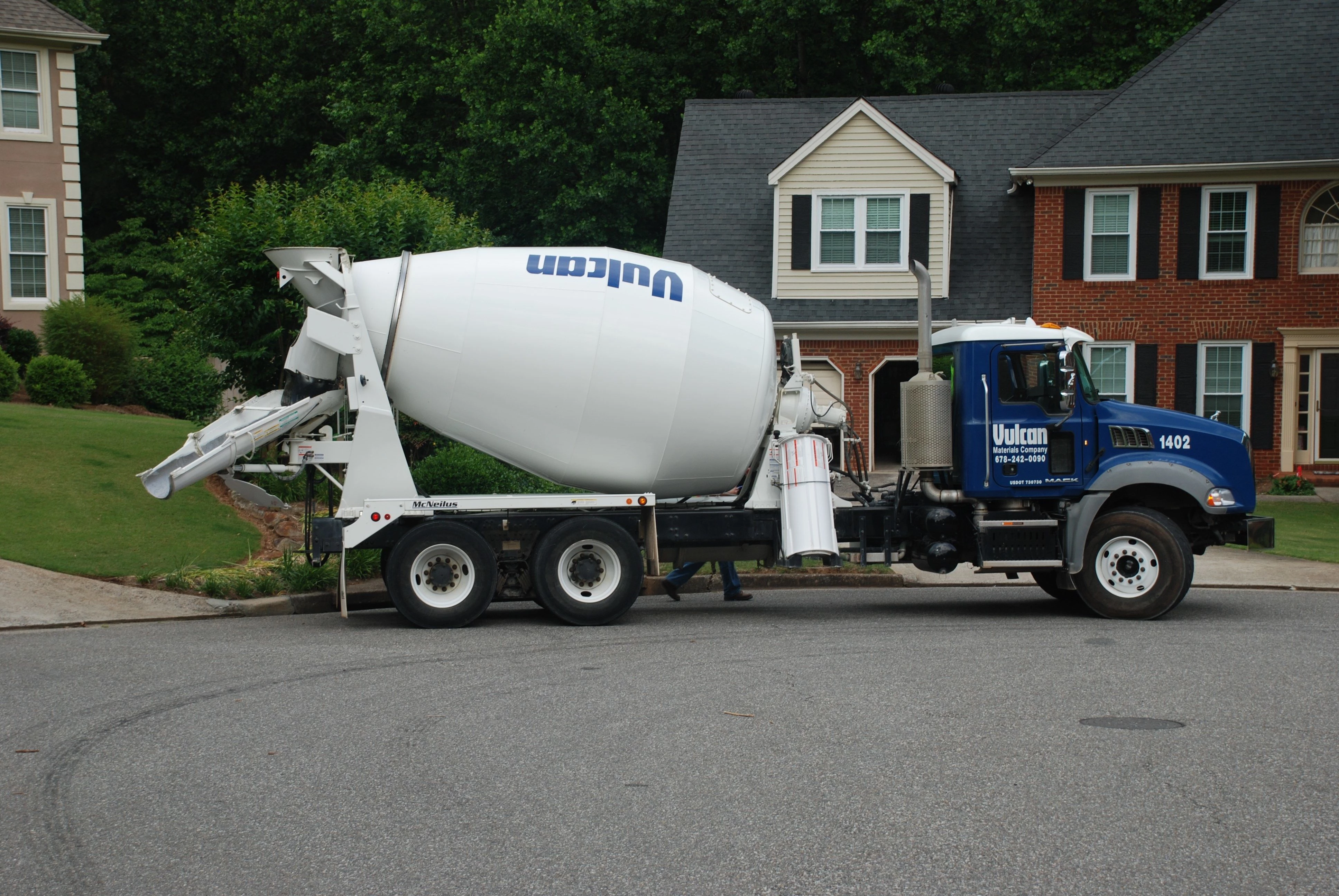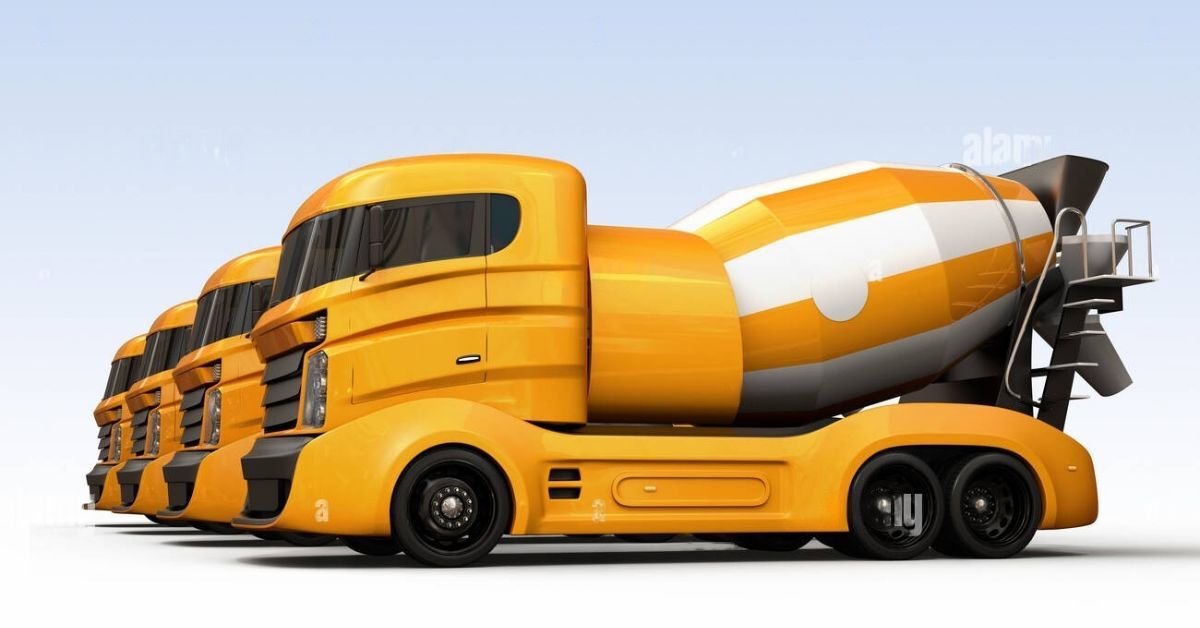A standard concrete truck typically holds 8 to 10 cubic yards of concrete. Smaller trucks can carry 4 to 5 cubic yards.
Concrete trucks are essential for construction projects. They ensure a steady supply of concrete to the site. These trucks come in various sizes to meet different needs. Standard trucks usually hold 8 to 10 cubic yards. For smaller projects, trucks with 4 to 5 cubic yards are available.
This versatility helps in managing both large and small construction tasks efficiently. The choice of truck size depends on project requirements and site accessibility. Proper planning ensures timely delivery and reduces waste. Selecting the right concrete truck size is crucial for the success of any construction project.

Basic Concepts
Understanding the basics of concrete measurement is crucial. This helps in planning construction projects. A concrete truck typically carries a specific amount of concrete. This amount is measured in cubic yards. Knowing the measurement units and their conversions can save time and money.
Concrete Measurement Units
Concrete is measured in cubic yards. One cubic yard is 3 feet long, 3 feet wide, and 3 feet high. This is the most common measurement unit for concrete. It is important to understand this unit for accurate calculations.
Here are some basic units:
- Cubic yard – The primary unit for concrete.
- Cubic foot – Another unit often used in smaller projects.
- Square foot – Used for surface area measurements.
Yards Vs Cubic Feet
Comparing yards and cubic feet helps in understanding their relationship. One cubic yard is equal to 27 cubic feet. This conversion is essential in planning.
| Unit | Equivalent in Cubic Feet |
|---|---|
| 1 Cubic Yard | 27 Cubic Feet |
| 0.5 Cubic Yard | 13.5 Cubic Feet |
| 0.25 Cubic Yard | 6.75 Cubic Feet |
Remember, a typical concrete truck can carry 8 to 10 cubic yards. This means the truck carries around 216 to 270 cubic feet. Calculating these units ensures you order the right amount of concrete.
Here is a quick guide:
- Calculate the total cubic yards needed.
- Convert cubic yards to cubic feet if needed.
- Order concrete based on truck capacity.
Understanding these basic concepts makes construction projects smoother.

Concrete Truck Capacity
Understanding the concrete truck capacity is crucial for any construction project. Knowing the capacity ensures you order the right amount of concrete. This helps avoid delays and additional costs.
Standard Truck Sizes
Concrete trucks come in various sizes. The most common ones are:
- 6 cubic yards
- 8 cubic yards
- 10 cubic yards
The 6 cubic yard truck is small and perfect for tight spaces. The 8 cubic yard truck is medium-sized and versatile. The 10 cubic yard truck is large and ideal for big projects.
Factors Affecting Capacity
Several factors can affect the concrete truck’s capacity:
- Weight Limits: Roads have weight limits. Trucks must comply with these.
- Truck Design: Some trucks have design limitations.
- Temperature: Hot weather can reduce concrete volume.
| Factor | Impact on Capacity |
|---|---|
| Weight Limits | May reduce the amount of concrete carried. |
| Truck Design | Design may limit maximum load. |
| Temperature | High temperatures can cause volume loss. |
Understanding these factors helps in planning your concrete needs. Always consult with your concrete supplier. They can provide specific details for your project.
Calculating Concrete Needs
Accurate concrete estimation is crucial for any construction project. Knowing how many yards of concrete are needed saves time and money. This guide will help you understand how to calculate concrete needs effectively.
Project Size Estimation
First, determine the size of your project. Measure the length, width, and depth of the area. Use a tape measure for accurate measurements.
- Length: Measure the longest side of your project.
- Width: Measure the shorter side of your project.
- Depth: Measure how deep the concrete will be poured.
These measurements will help calculate the total volume of concrete needed.
Common Calculation Methods
There are several methods to calculate the volume of concrete. Here are two common methods:
- Volume Calculation: Use the formula:
Volume = Length x Width x Depth. Ensure all measurements are in the same unit. - Concrete Calculator: Use an online concrete calculator. Input your measurements to get the total volume needed.
For example, if your project is 10 feet long, 5 feet wide, and 0.5 feet deep, the calculation would be:
| Length (feet) | Width (feet) | Depth (feet) | Volume (cubic feet) |
|---|---|---|---|
| 10 | 5 | 0.5 | 25 |
To convert cubic feet to cubic yards, divide by 27. In this case, 25 cubic feet is approximately 0.93 cubic yards.
Types Of Concrete Trucks
Concrete trucks come in various types, each serving a different purpose. This section will explore the different types of concrete trucks and their unique features. Understanding these can help you choose the right truck for your needs.
Mixers Vs Volumetric Trucks
There are two main types of concrete trucks: Mixers and Volumetric Trucks.
- Mixers: These trucks mix the concrete on the way to the job site. They have a rotating drum that keeps the concrete from setting.
- Volumetric Trucks: These trucks mix the concrete at the job site. They carry the raw materials separately and mix them as needed.
| Feature | Mixers | Volumetric Trucks |
|---|---|---|
| Mixing Location | On the way | On-site |
| Flexibility | Low | High |
| Concrete Quality | Consistent | Variable |
Specialized Trucks
Some concrete trucks are designed for specialized tasks. These trucks offer unique features that make them ideal for specific jobs.
- Concrete Pump Trucks: These trucks use a pump to deliver concrete to hard-to-reach areas.
- Mini Mixer Trucks: These are smaller trucks for small-scale projects or tight spaces.
- Front Discharge Mixer Trucks: These trucks allow the driver to control the discharge of concrete, making them efficient for large projects.
Each of these specialized trucks is tailored to specific needs. Choosing the right one can make a big difference in your project.
Efficiency And Cost
Understanding the efficiency and cost of a concrete truck is vital for any construction project. Knowing how many yards a concrete truck carries can help optimize your budget and timeline. Let’s dive deeper into the cost per yard and how to optimize delivery.
Cost Per Yard
The cost of concrete varies by region and supplier. On average, it ranges from $100 to $150 per cubic yard. This cost includes the materials, delivery, and other associated fees.
| Yards | Cost Range |
|---|---|
| 1 Yard | $100 – $150 |
| 5 Yards | $500 – $750 |
| 10 Yards | $1000 – $1500 |
Bulk orders might get a discount. Always check with your supplier.
Optimizing Delivery
Optimizing delivery can save you both time and money. Here are a few tips:
- Plan Ahead: Schedule your delivery to avoid delays.
- Order the Right Amount: Over-ordering can be costly. Under-ordering can delay the project.
- Prepare the Site: Ensure the site is ready for the delivery.
- Communicate Clearly: Clear communication with your supplier can prevent mistakes.
Proper planning and communication are key to efficient delivery.
Practical Tips
Concrete trucks carry large amounts of concrete. Getting the right amount is crucial. Ordering too much or too little can cause problems. Here are some practical tips to help.
Ordering The Right Amount
First, calculate the area you need to cover. Measure length, width, and depth. Use these figures to determine the total cubic yards needed.
Next, use a concrete calculator. Many websites offer free tools. Enter your measurements for an accurate estimate.
Discuss your project with a concrete supplier. They can offer advice and confirm your calculations. Always order a bit extra to cover any errors.
Avoiding Shortages And Excess
Shortages can delay your project. Excess concrete can be wasteful and costly. Here are tips to avoid both.
- Always add 10% extra to your estimate. This accounts for errors and unforeseen needs.
- Schedule deliveries in phases for large projects. This ensures you have enough and can adjust orders if needed.
- Communicate clearly with your supplier. Share project details and any changes promptly.
Use these tips to manage your concrete needs effectively. Avoiding shortages and excess saves time and money.

Frequently Asked Questions
How Many Yards Does A Concrete Truck Hold?
A typical concrete truck can hold about 8 to 10 cubic yards of concrete. The exact amount may vary.
How Much Concrete Is In A Truck Load?
A full truck load typically contains 8 to 10 cubic yards of concrete. This is standard for most trucks.
How Much Area Does One Truck Of Concrete Cover?
One truck of concrete can cover approximately 80 to 100 square feet. This depends on the thickness of the slab.
What Is The Cost Of A Full Concrete Truck?
The cost of a full concrete truck can range from $1,000 to $1,500. Prices vary by location and mix.
Conclusion
Understanding the capacity of a concrete truck helps in planning your construction projects efficiently. Knowing how many yards a truck can deliver ensures you order the right amount. This not only saves time but also reduces costs. Make sure to consult with professionals for accurate measurements and successful project execution.

Leave a Reply
You must be logged in to post a comment.